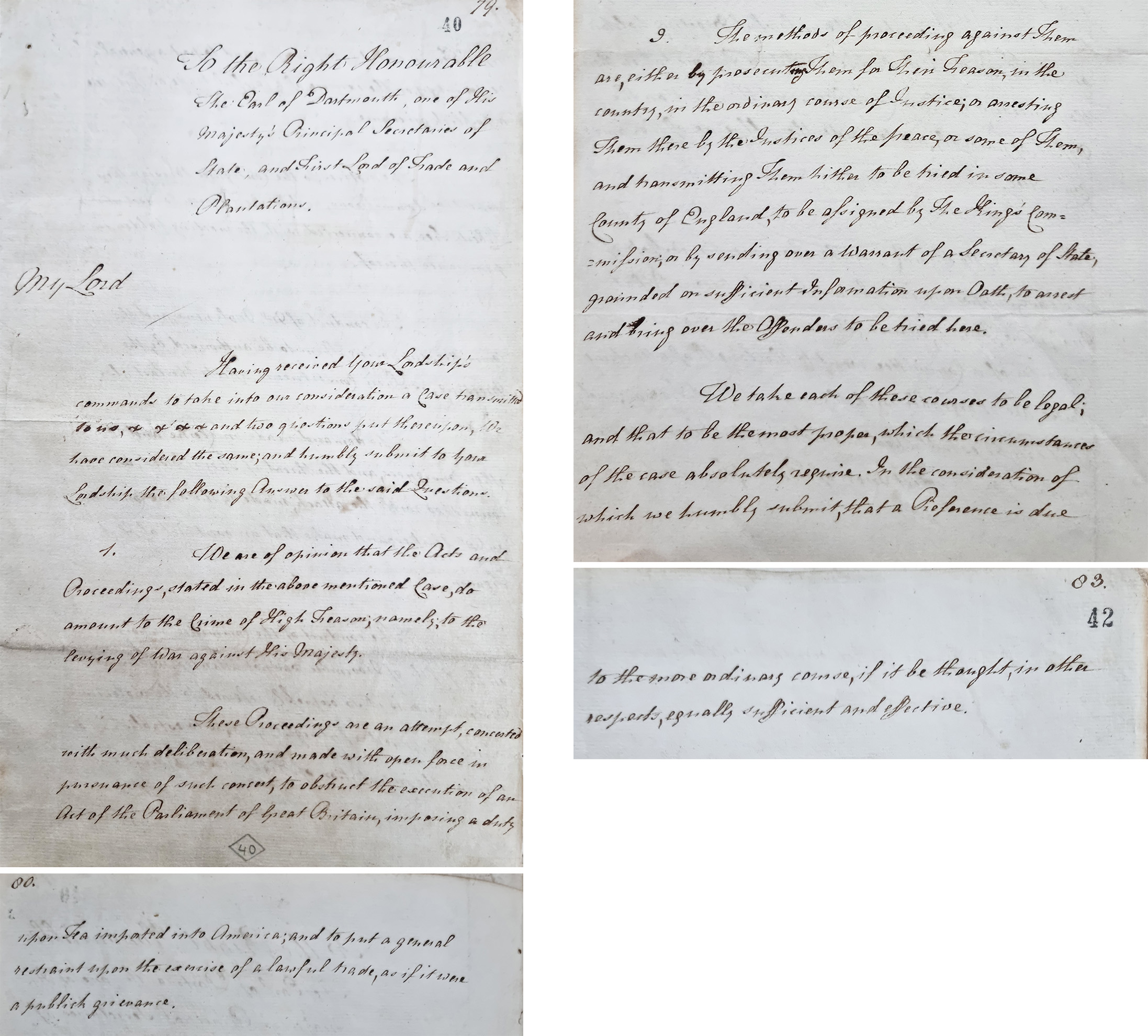
Extracts from a document requesting legal advice sent to the Attorney and Solicitor General from William Legge, Earl of Dartmouth, the Secretary of State for the Colonies, February 1774, Catalogue Ref: CO 5/160
The document included a narrative of events and questions concerning the punishment of those involved in the Boston Tea Party. The document recorded that ‘advice [was] received from Boston in letters from Governor Hutchinson, Admiral Montague and the Commandant of the King’s troops at Castle William and the information taken here of Captain Scott, lately arrived from thence, contain the following facts…
Transcript
To the Right Honorable
The Earl of Dartmouth, one of his
Majesty’s Principal Secretaries of State, and First Lord of Trade and Plantations
My Lord,
Having received Your Lordship’s commands to take into consideration a case transmitted to us etc… and two questions put thereinupon, we have considered the same; and humbly submit to your Lordship the following Answer to the said Questions.
- We are of the opinion that the Acts and Proceedings, stated in the above-mentioned case do amount to the Crime of High Treason, namely to the levying of War against His Majesty.
These proceedings are an attempt, concerted with much deliberation, and made with open force in pursuance of such concert, to obstruct the execution of an Act of the Parliament of Great Britian, imposing a duty upon Tea imported into America; and to put a general restraint upon the exercise of lawful trade, as if it were a publick grievance.
…
- Methods of proceeding against Them are either by prosecuting them for Their Treason, in the country, in the ordinary course of Justice, or arresting Them there by the Justices of the Peace, or some of Them and transmitting Them hither to tried in some County of England, to be assigned by the King’s Commission, or by sending over a Warrant of a Secretary of State grounded on sufficient Information upon Oath, to arrest and bring over the Offenders to be tried here.
We take each of these courses to be legal, and that to be the most proper, which the circumstances of the case absolutely require. In the consideration of which we humbly submit, that a Preference is due to the most ordinary course, if it is to be thought , in other respects, equally sufficient and effective.
- What is the opinion of the Attorney General on the case for ‘high treason’?
- What grounds are offered for the case for ‘high treason’?
- What are the THREE ways of carrying out a prosecution for ‘high treason’ according to the Attorney General?
- What does this document reveal about how was justice administered in the colony of Massachusetts?
